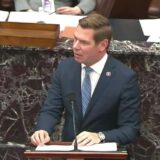Should the USA Study Policy be Reassessed?
Higher education is critical to an individual’s success, providing socio-economic and educational opportunities to those pursuing it. Advances in technology and pedagogy and shifts in the global economy have begun challenging the traditional status quo of higher education within the United States (US). Such challenges have necessitated a critical reassessment of the US’s current higher education study policies.
Current US Higher Education Study Policies
The dominant study policies in US higher education are shaped by outmoded lecture-and-test models that emphasize the transfer of information more than knowledge creation and application. Monumental shifts in the technological and economic landscape of the US have made such traditional methods for obtaining a college degree increasingly inadequate, particularly with the rise of alternative forms of education, such as online education and micro-schools.
Rationale for Reassessment
The current study policies, though still the prevalent method of higher education, are no longer appropriate for the advancements in technology and its application in new pedagogical models. Consequently, a critical reassessment of the current system is necessary to ensure that the US higher education system can keep up with the ever-evolving technological landscape.
Assessing Potential Benefits and Risks of Reassessment
The benefits of reevaluating US higher education are manifold. A shift in the focus of higher education from the traditional transfer of information to competency-based learning could lead to a more holistic education for students. Such a shift could also enable cost savings and access to more opportunities for those seeking higher education. However, the transition period to implement reform could be difficult and costly.
Review of Public Opinion
Public opinion has been supportive of the reassessment of higher education study policies. Surveys conducted by major news outlets have shown that those surveyed largely agreed that US higher education needs reform and that a shift in focus from information to application is appropriate. In addition, there is strong support for more access to higher education through alternative delivery methods.
Challenges Faced for Adoption of New Policy
The main challenge to implementing a reformed higher education system in the US is the need for more consensus and support on how the system should be reformed. Despite widespread support for reform, there needs to be more agreement on the details of reform. Such a situation leads to a lack of public consensus that could slow or impede reform adoption.
Analysis of the Impact of Changing Higher Education Policies
The impact of changing higher education policies in the US is likely to be visible shortly. There is a strong possibility of more significant enrollment numbers, smaller tuition fees, and better access. Additionally, due to the shift from information to application, well-trained and skilled professionals could be groomed to enter the job market.
Recommendations
The following recommendations should be considered to facilitate the adoption of reformed study policies in US higher education and minimize the risks associated with the transition. Policies should allow for greater flexibility in curriculum design, including competency-based and experiential learning. Secondly, policies should ensure students can access educational options. Finally, more research should be conducted to understand the potential impact of such policy changes.
Future Scope of Research
The future scope of research in this field should focus on two main areas. Firstly, research should focus on implementing various reform strategies, including detailed cost-benefit analyses and assessments of their impact on students. Secondly, research should focus on the social impacts of reform, such as how access to higher education will change and any regulatory and ethical implications of such reform.
Conclusion
In conclusion, the necessity of a critical reassessment of higher education policies in the US is evident due to advancements in technology and the global economy. The benefits of such reform are numerous, with potential improvements to student access, cost savings, and quality of education. However, adopting such reform faces challenges, including more consensus on reform details and the potential risks of transitioning to new policies. Regardless, such reform is necessary to ensure that US higher education can keep up with technological advances and the changing socio-economic landscape.
For those seeking a modern and practical approach to higher education, services like HelpHomework.net provide innovative solutions to improve the student experience. An extensive and diverse educational platform allows one to explore one’s potential, gain hands-on experience, and gain valuable skills to benefit one’s future.



















